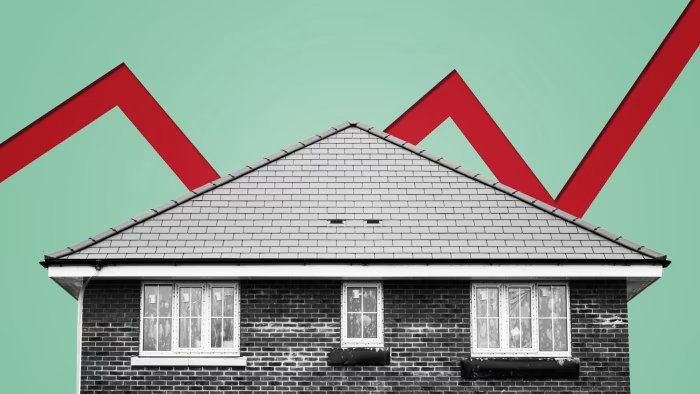Unlock the Editor’s Digest for free
Roula Khalaf, Editor of the FT, selects her favourite stories in this weekly newsletter.
Landlords and owners of expensive homes are to be hit by higher taxes as Rachel Reeves’ Budget leaned on property to help boost the UK’s finances.
In an unexpected move, the chancellor unveiled an increase in property income tax from April 2027. From that point, a 2 percentage point increase will be applied to the basic, higher and additional rates, taking them to 22, 42 and 47 per cent, respectively.
It came alongside a “mansion tax” surcharge on properties worth more than £2mn, which will kick in from April 2028.
Property income tax is paid on income of more than £1,000 from letting land and buildings.
The Office for Budget Responsibility said the measures would “reduce returns to private landlords, following various measures over the past 10 years that have also reduced returns”.
This was likely to “reduce the supply of rental property over the longer run . . . [and] risks a steady long-term rise in rents if demand outstrips supply”, it added.
“Over the last few years, landlords have contended with the removal of wear and tear allowance, landlords’ energy savings allowance, dramatic hikes in CGT, the significant reduction in the annual tax-exempt amount for CGT and the removal of tax relief on finance costs (mortgage interest relief),” said Chris Norris, chief policy officer at the National Residential Landlords Association.
Landlords are also facing the recently passed renters’ rights bill, which ends “no-fault” evictions.
Reeves’ “mansion tax”, which will take the form of a recurring annual charge, is expected to raise £400mn in 2029-30.
The charges will be spread across four price bands. For properties valued in the lowest £2mn to £2.5mn band, the surcharge will total £2,500, rising to £7,500 for a property valued in the highest band of £5mn or more.
The government did not specify how it would undertake the revaluations, but the Financial Times previously reported that properties in the top three council tax bands — F, G and H — would be revalued.
Deferrals will be allowed depending on circumstances and the government has announced a consultation on a system of appeals.
For some real estate agents, the Budget has triggered a wave of pent-up activity.
Within the first hour of its release, Claire Reynolds, UK head of sales at Strutt & Parker, said she was contacted by clients and agents looking to proceed with transactions.
“We’ve had a wave of instructions that were held back, especially in London. They’ve all said, ‘let’s go, we’re comfortable with the market landscape’.”
Uncertainty was likely to persist as revaluations started, industry figures said. “There is no exact science to this and there will be a lot of challenges as people argue down the value of their houses,” said Roarie Scarisbrick, partner at Property Vision.
Many in the industry thought the government had missed an opportunity to tinker with stamp duty, such as implementing a holiday or changing the thresholds, to help stimulate home sales.
“What matters more in the long run is reforming [stamp duty land tax], which is the real dampener on the market,” said Idina Glyn, partner at law firm Mishcon de Reya.
The government also said on Wednesday it expected the UK’s housing stock to increase by only 215,000 units in 2026-27, down from an average annual rise of 260,000 in the early 2020s. However it said Labour’s planning reforms would result in net additions reaching 305,000 in 2029-30.
The average UK house price is expected to rise to just under £305,000 in 2030, from £260,000 in 2024, according to the OBR.


